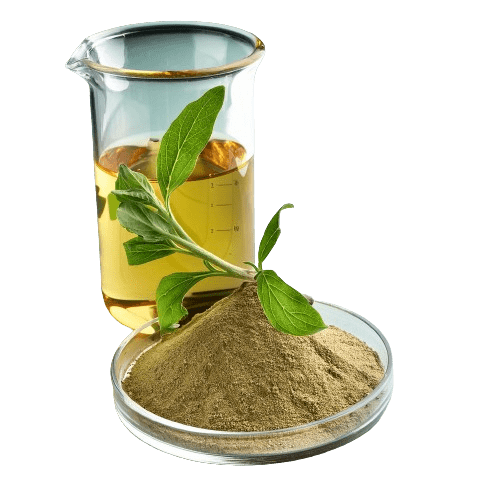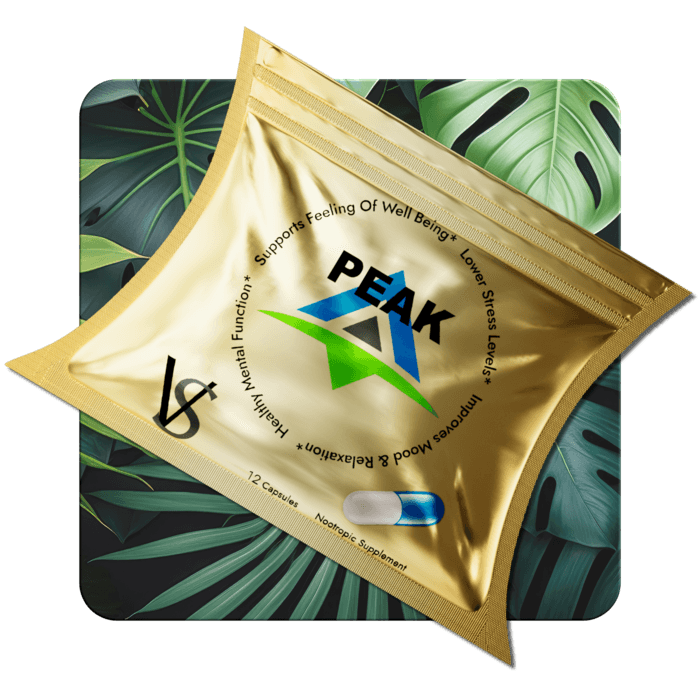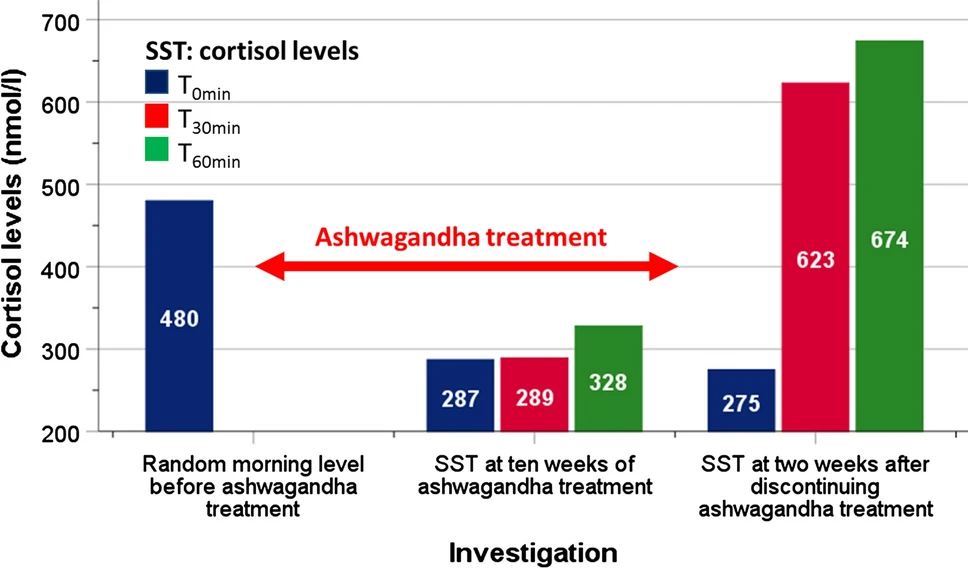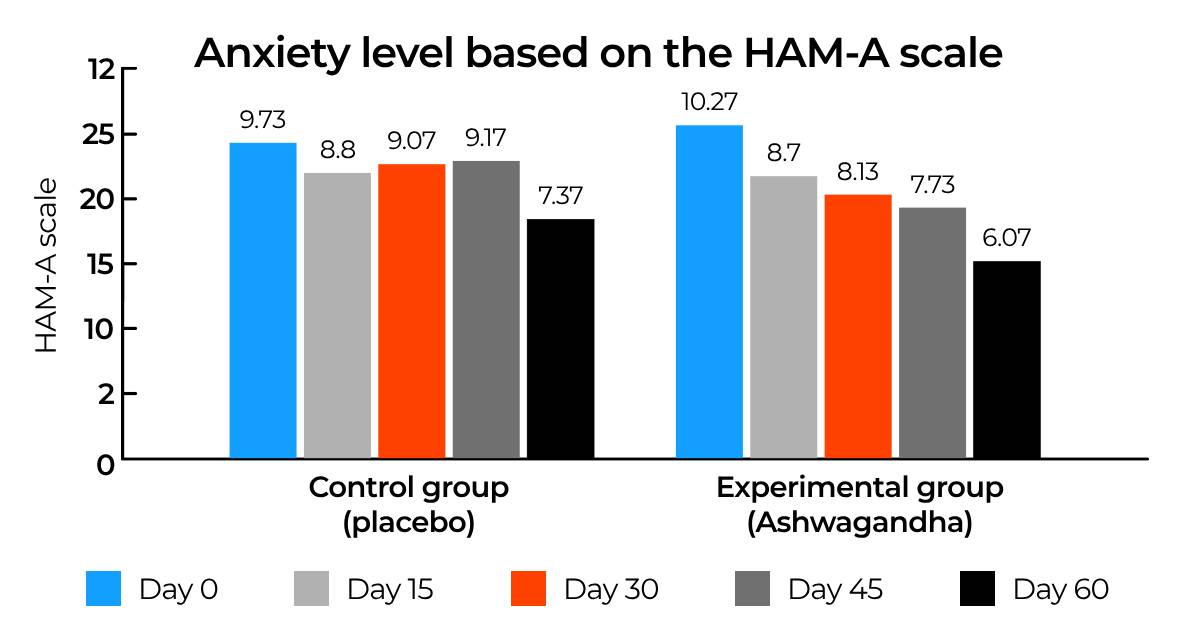What is ashwagandha?
Ashwagandha, scientifically known as Withania somnifera, is a powerful adaptogenic herb that has been used for centuries in Ayurvedic medicine to promote overall health and well-being 1 2 3 . This ancient medicinal herb, also referred to as Indian ginseng or Indian winter cherry, is renowned for its ability to reduce stress, improve cognitive function, and enhance physical performance 2 4 5 .
The name “ashwagandha” is derived from Sanskrit, with “ashva” meaning horse and “gandha” meaning smell, referring to the herb’s unique odor and the belief that it can impart the strength and vitality of a horse to those who consume it 6 10 . While various parts of the plant are used in traditional medicine, the most common supplemental form is an extract of its roots, which contains the highest concentration of the herb’s active compounds, known as withanolides 5 10 .
What are ashwagandha’s main benefits?
Ashwagandha, the ancient Ayurvedic herb, is most renowned for its remarkable ability to alleviate stress and anxiety, making it a popular choice for those seeking natural ways to improve their mental well-being 2 5 6 . Numerous studies have demonstrated ashwagandha’s anxiolytic (anti-anxiety) properties, as well as its capacity to significantly reduce cortisol levels, the primary stress hormone in the body 1 3 5 .
In recent years, a growing body of evidence has emerged supporting ashwagandha’s efficacy in enhancing sleep quality and duration 3 5 . Research suggests that this powerful herb can help individuals with and without insomnia achieve better sleep, allowing them to wake up feeling more refreshed and rejuvenated 3 4 .
Emerging research has also shown promise in ashwagandha’s ability to enhance cardio-respiratory and musculoskeletal performance in both athletes and non-athletes alike 6 7 . By improving endurance, strength, and recovery, ashwagandha may offer significant benefits for those looking to optimize their physical performance 6 8 .
Show more +Show less –What are ashwagandha’s main drawbacks?
While ashwagandha is generally considered safe, more long-term research specifically designed to evaluate its safety profile is necessary to fully understand any potential risks associated with its use 3 5 7 . Some individuals may experience mild drowsiness and sedation when taking ashwagandha, which should be taken into account when considering its use 5 10 .
A few case reports have suggested that ashwagandha may cause adverse effects such as rash or thyroid dysregulation 3 8 . However, these findings have not been consistently observed in larger safety studies, indicating that further research is needed to clarify the relationship between ashwagandha and these potential side effects 5 7 .
Given the limited evidence surrounding ashwagandha’s potential side effects, these anomalies may just be outliers. Like any supplement, people react differently to different things. We cannot expect a surefire consistent reaction as we do with medication, which is why people choose to use supplements in the first place – to avoid the need for a controlled prescription drug.
Show more +Show less –How does ashwagandha work?
Ashwagandha is rich in bioactive compounds like alkaloids, flavonoids, glycosides, steroids, and steroidal lactones, particularly withanolides, which are believed to be the primary drivers of its health-promoting properties 7 . Research suggests that ashwagandha’s influence on the hypothalamic-pituitary-adrenal (HPA) axis, as evidenced by its ability to modulate cortisol levels, may be a key mechanism underlying its effects on human health 1 2 3 4 5 .
Studies investigating ashwagandha’s impact on stress and stress-related conditions, which are often associated with cortisol, other neuroendocrine hormones, and neurotransmitters, have provided insights into its potential to mitigate the effects of both healthy and detrimental stress 1 2 3 . This stress-modulating effect may, in turn, influence various health outcomes, such as anxiety, depression, fertility, obesity, sleep, exercise recovery, immune health, and cognition 7 .
The HPA stress response may also account for some of the variability observed in the existing body of evidence, as ashwagandha may affect the HPA axis differently in different individuals or due to the complex relationship between stress and health conditions 5 . If stress is not the primary cause of a particular health issue, ashwagandha may not be an effective treatment for that condition.
The most robust evidence to date indicates that the best ashwagandha supplement has a high concentration of withanolides, which are responsible for its cortisol and corticosteroid-lowering effects 1 2 3 4 5 . In studies where cortisol levels were reduced, improvements were also observed in other outcomes, such as anxiety, weight management, fertility, cognition, sleep, and overall quality of life 6 .
Show more +Show less –Other names for Ashwagandha
Ashwagandha is also known as:
- Withania somnifera
- Indian ginseng
- Smell of Horse
- Winter cherry
- Dunal
- Solanaceae
Ashwagandha should not be confused with:
- Withania coagulans (Different Plant)
- Panax ginseng (different plant)
Dosage information
Researchers have investigated a wide range of daily dosages, spanning from 120 mg to an impressive 5,000 mg of ashwagandha root extract 6 7 . The most frequently employed dosing strategy involves administering 600 mg of ashwagandha per day, split into two equal doses – one taken with breakfast in the morning and the other consumed in the evening 6 .
Withanolides, the primary active compounds in ashwagandha, are often used as a standardization benchmark for extracts 3 . Clinical trials have incorporated standardized ashwagandha extracts containing withanolide concentrations ranging from 1.5% to as high as 35% 7 . However, many studies do not provide detailed information about withanolide content, and the optimal concentration for maximum efficacy remains unclear 7 . It is crucial to recognize that variations in extraction methods, formulation, and composition can significantly influence the physiological response to ashwagandha supplementation 7 .
Current evidence indicates that a daily dose of 600 mg of ashwagandha may be more effective than lower doses for enhancing sleep quality 5 7 . Similarly, athletes engaged in intensive exercise regimens may experience greater benefits from daily doses ranging from 600 mg to 1,000 mg compared to lower doses 2 6 . Nevertheless, further research is necessary to determine whether doses exceeding 600 mg per day confer additional advantages 7 .
Show more +Show less –















